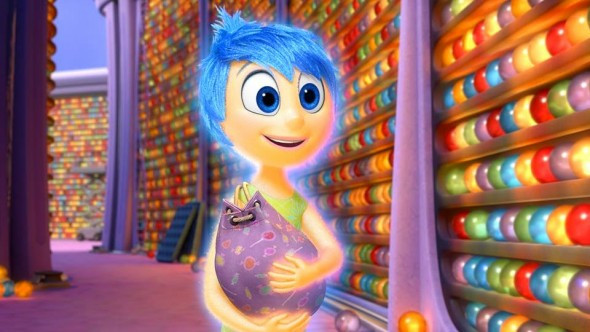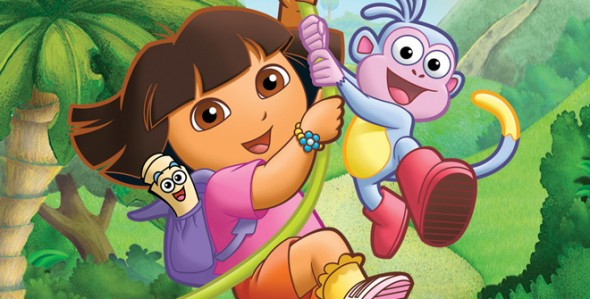The upcoming live-action remake of The Jungle Book has sparked renewed interest in its classic soundtrack, particularly the iconic “Bare Necessities” song. But as we anticipate a potentially darker rendition of the jungle tale, it’s worth revisiting what this cheerful tune truly represents within the narrative and beyond. Is it simply a lighthearted ditty, or does “Bare Necessities” carry a deeper philosophical weight, especially when compared to other famous Disney anthems of carefree living, like “Hakuna Matata” from The Lion King?
To understand the significance of “Bare Necessities,” we need to look beyond its catchy melody and consider its context within The Jungle Book and its potential philosophical underpinnings. When Baloo the bear advises Mowgli to seek out the “Bare Necessities” of life, what exactly is he advocating? Is it a simplistic message of laziness, or something more profound?
Some might interpret Baloo’s philosophy as echoing Epicurean ideals, or perhaps drawing parallels to natural law concepts found in Buddhism, Indian philosophy, or even a romanticized, nomadic lifestyle. Rudyard Kipling, the original author of The Jungle Book, was certainly weaving fables with moral undertones, and these fables are directed at the reader as much as the characters within the story.
Disney’s adaptation of The Jungle Book operates as a bildungsroman, a coming-of-age story. In this context, the moral lessons are primarily aimed at Mowgli, guiding him towards his place in the social order. In the Disney version, this ultimately means Mowgli transitioning from the jungle to the human world.
However, the “Bare Necessities” advice seems somewhat misplaced for Mowgli. Raised by wolves in the jungle, minimalism is already his reality. His life, while adventurous, isn’t burdened by complexity or material desires. He doesn’t need Baloo to teach him simplicity. Mowgli’s journey is actually one of increasing complexity and involvement with the jungle – facing Shere Khan, encountering King Louie, and ultimately meeting a human girl.
Therefore, the significance of Baloo’s “Bare Necessities” message for Mowgli isn’t necessarily in the content of the advice itself. Instead, it’s about what Baloo represents. He embodies a different worldview, a contrasting belief system from anything Mowgli has encountered before.
Mowgli is drawn to Baloo because of his novelty and exoticism. Baloo is friendly, trustworthy, strong, and fun-loving. In the Disney narrative, Mowgli is portrayed as open-minded, someone who appreciates different perspectives and enjoys new experiences, even while knowing his ultimate belonging lies elsewhere. In a modern context, Mowgli might be the friend who constantly shares photos from his study abroad program.
This dynamic mirrors Simba’s relationship with Timon and Pumbaa in The Lion King. Their “Hakuna Matata” philosophy, meaning “no worries,” is presented as a lifestyle. Yet, Simba isn’t truly meant to embrace this carefree existence permanently. He is destined for responsibility, to reclaim his kingdom and face his past.
Timon and Pumbaa aren’t profound advisors, but they are different. Their contrasting worldview is crucial for Simba’s growth, exposing him to diverse perspectives and broadening his understanding of the world beyond the Pride Lands. Similarly, Baloo’s “Bare Necessities” offers Mowgli a glimpse into another way of being, not necessarily a path Mowgli is meant to follow permanently, but a valuable encounter nonetheless.
 Inside Out Joy
Inside Out Joy
It’s interesting to note that while “Bare Necessities” is commonly spelled as such, the phrase could also be interpreted as “Bear Necessities,” given Baloo’s species. This subtle wordplay adds another layer to the song, grounding its philosophy in the specific context of Baloo’s bear identity.
In fact, re-examining the “Bare Necessities” song reveals that its advice is surprisingly bear-centric. The lyrics focus on eating ants, scratching your back on trees, and enjoying honey from bees – activities directly related to a bear’s natural habits. The song doesn’t explicitly offer a universally applicable, metaphorical message.
This contrasts with “Hakuna Matata,” which, while presented through the actions of Timon and Pumbaa, is more readily understood as a broader mindset. Timon and Pumbaa act as case studies for this philosophy of not caring about societal expectations or responsibilities, embracing their outcast status.
Further solidifying this interpretation is “I Wanna Be Like You,” sung by King Louie. This song reinforces the idea that the “jungle” and its inhabitants represent a world distinct from Mowgli’s, a realm of “otherness” rather than a source of universally applicable wisdom for the protagonist. However, “I Wanna Be Like You” carries a more sinister and unsettling tone, highlighting the potential dangers of complete immersion in this “other” world.
Each animal character in The Jungle Book embodies a worldview rooted in their ecological niche and survival strategies. Baloo’s “Bare Necessities” reflects the simple, instinctual life of a bear. But human necessities, Mowgli’s necessities, are inherently different due to our different needs and place in the ecosystem.
This raises a crucial question about The Jungle Book‘s overall message. Is it simply about “staying in your lane,” recognizing your own niche and belonging? Or does it advocate for a synthesis of lessons learned from diverse encounters?
Ultimately, The Jungle Book seems to value friendship and camaraderie across different species, but its core message leans towards the importance of finding your own kind and belonging. The animals, even the well-meaning Baloo and Bagheera, ultimately facilitate Mowgli’s return to the human world. Baloo, despite wanting to adopt Mowgli, recognizes that Mowgli’s best path lies outside the jungle, away from the dangers it presents to a human child. Bagheera, the solitary panther, also guides Mowgli towards human society, recognizing it as his rightful place.
This narrative arc differs significantly from “Hakuna Matata.” “Hakuna Matata” is explicitly presented as a motto, almost a creed. Timon, Pumbaa, and Simba are all, in a sense, refugees, displaced from their original habitats. “Hakuna Matata” becomes a balm for the psychological trauma of displacement, a way to cope with being cut off from the familiar. It reframes being away from “home” as a positive feature, a liberation from responsibility.
However, this “vacation” from responsibility is temporary for Simba. He eventually returns home to confront his past and reclaim his rightful place. “Hakuna Matata” serves as a necessary interlude, a period of healing and growth, but not a permanent lifestyle.
“Hakuna Matata” is indeed a real Swahili phrase, translating roughly to “No Problem.” However, its use in The Lion King draws from a specific, somewhat touristic context. “Hakuna Matata,” alongside greetings like “Jambo!”, is often associated with what could be termed “resort Swahili,” a simplified version used in tourist contexts, stemming from colonial and post-colonial tourism in East Africa.
This is exemplified in a popular Kenyan tourist song that translates to “Hello! Hello Mister! How are you doing? Very Well! Visitors are welcome. Our Kenya! No Problems!” This association, while perhaps unintentional, can evoke uncomfortable stereotypes of simplistic, carefree portrayals of African cultures.
In everyday conversational Swahili, phrases like “Hakuna Shida” (no problem) and “Sawa sawa” (it’s fine, no big deal) are more common. These phrases carry a slightly different nuance, implying more of a “yes, there is a problem, but we’ll handle it” attitude, a pragmatic approach rather than complete carefree-ness.
Therefore, “Hakuna Matata” in The Lion King functions more as a temporary escape, a “vacation” from responsibility and worry. It’s a period of respite before facing the inevitable challenges of adulthood and responsibility.
 Dora_Website_Spotlight2
Dora_Website_Spotlight2
The contrast between “Bare Necessities” and “Hakuna Matata” becomes even more apparent when considering their depiction of sustenance. Both songs feature scenes of eating bugs under a log. In “Bare Necessities,” it’s presented as natural and instinctive, “just the bare necessities” that bears do. In “Hakuna Matata,” Timon and Pumbaa acknowledge the “slimy yet satisfying” nature of bugs, implying it’s a less-than-ideal but functional food source, reflecting their displaced status.
From a parental perspective, watching these movies with children adds another layer of interpretation. Parents recognize the desire for children to experience carefree joy, yet they also understand the necessity of growing up and accepting adult responsibilities. Inside Out, another Pixar film, explores a similar thematic arc.
The “jungle party” depicted in “Bare Necessities” and the carefree lifestyle of “Hakuna Matata” carry a dramatic irony. Adults understand these periods of carefree-ness are temporary, while children might perceive them as ideal and permanent.
This resonates with a certain aspect of Western culture, where there’s an accepted phase of life for travel, exploration, and making connections with “exotic strangers,” but with the underlying expectation of eventual return “home,” to one’s own kind.
The alternative, failing to return “home,” is often portrayed as a descent into darkness, as seen in narratives like Heart of Darkness or Apocalypse Now. The horror in Apocalypse Now isn’t simply the external dangers of Cambodia, but also the internal descent of Kurtz, who, by remaining in the “jungle,” becomes a “poet of despair.”
Perhaps a fictional counterpoint to this is Dora the Explorer. Unlike Simba, Mowgli, or Kurtz, Dora’s “home” isn’t a transcendent, idealized place. She has a distinct cultural identity, but her role is that of an explorer, a navigator. She observes, helps, and learns without imposing her own worldview.
Dora, as an explorer, embodies neutrality. She navigates different cultures and environments, offering help and learning in return. She doesn’t editorialize or seek to fundamentally change the places she visits. This approach offers a different perspective on engaging with “otherness,” one of respectful observation and interaction rather than assimilation or alienation.
Dora’s backpack, a constant companion, is symbolic. It’s not filled with her necessities, but with your necessities, representing her readiness to assist and adapt to the needs of others.
Unlike characters like Mowgli or Simba who are ultimately defined by their “homecoming,” Dora’s journey is continuous exploration and interaction. She embodies a different model of engagement with the world, one of constant learning and reciprocal exchange.
In conclusion, “Bare Necessities” is more than just a catchy tune. It’s a song deeply embedded in the specific context of The Jungle Book, reflecting Baloo’s bear-centric philosophy and highlighting the differences between animal and human “necessities.” When contrasted with “Hakuna Matata,” “Bare Necessities” reveals itself not as a universal motto, but as a glimpse into a different way of life, a valuable encounter in Mowgli’s journey of self-discovery, but not his ultimate destination. The song, and the film it inhabits, ultimately point towards the importance of finding your own kind and your own “home,” even after venturing into the fascinating, but ultimately “other,” jungle.


